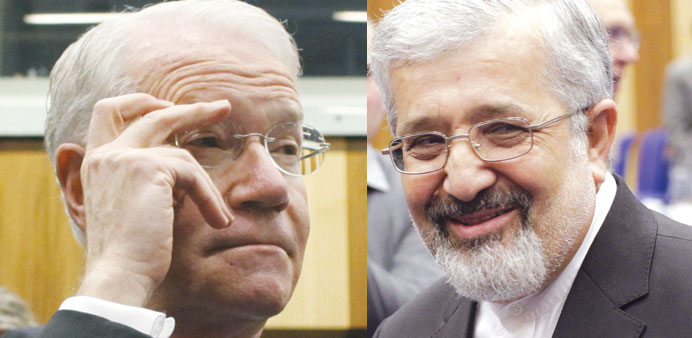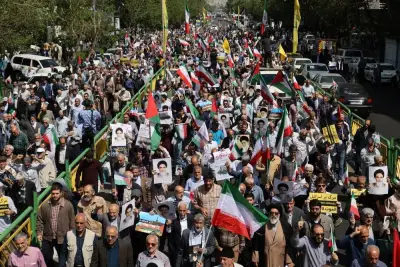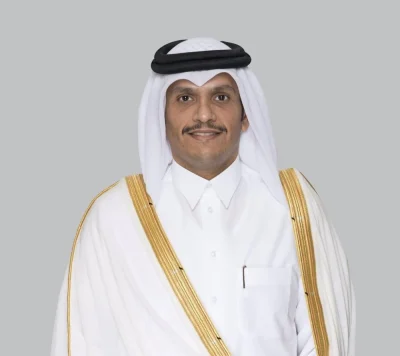New US ambassador to the IAEA Joseph Macmanus attends a board of governors meeting at the UN headquarters in Vienna and Iran’s ambassador to IAEA Ali Asghar Soltanieh at the UN headquarters in Vienna (right).
By Fredrik Dahl, Vienna /Reuters
Six world powers will call for quick tangible results in nuclear negotiations with Iran that have resumed after an eight-month break, according to a draft joint statement obtained yesterday.
The draft being considered by the United States, Russia, China, France, Germany and Britain described last week’s talks with Iran in Almaty, Kazakhstan, as “useful”. The two sides are due to meet again in early April at the same venue.
“We seek tangible results in this diplomatic process at an early stage,” said the statement, expected to be delivered at a board meeting of the UN nuclear watchdog today. “We reaffirm our continuing support for a diplomatic solution to the Iranian nuclear issue,” it said.
It was unclear whether the statement, dated March 4, was the final version to be read out at this week’s meeting of the 35-nation governing board of the UN’s International Atomic Energy Agency (IAEA), the Vienna-based UN nuclear watchdog.
It said the powers were “deeply concerned that Iran continues to undertake certain nuclear activities” contrary to UN Security Council resolutions, including recent steps to install more advanced uranium enrichment centrifuges.
The relatively mild language used in the one-page statement reflected an apparent compromise between the four Western states on the one hand and Russia and China on the other.
Moscow and Beijing have in the past criticised unilateral Western sanctions on Tehran, and have tended to be less harsh in their public statements.
On Monday, US Vice President Joe Biden said that President Barack Obama was not bluffing about using force to thwart Iran’s nuclear ambitions if all else fails, as Israeli Prime Minister Benjamin Netanyahu called for a “credible military threat” against Tehran.
Iran denies Western and Israeli allegations that it is seeking the capability to make nuclear weapons, saying its nuclear programme is an entirely peaceful project to generate electricity.
But its refusal to curb atomic activity that can have both military and civilian purposes, and its lack of full openness with UN inspectors, have drawn increasingly tough US and European punitive measures against the major oil producer.
Israel, Iran’s arch-enemy, which is convinced that it is secretly trying to develop a nuclear weapon, has grown impatient with the protracted talks and has threatened pre-emptive war against Tehran if it deems that diplomacy has failed.
Iran was upbeat last week after talks with the powers in Kazakhstan about its nuclear work ended with an agreement to meet again. But Western officials said it had yet to take concrete steps to ease their fears about its atomic ambitions.
In Almaty, the six powers offered modest relief from economic sanctions in return for Iran scaling back its most sensitive nuclear activity, but made clear that they expected no immediate breakthrough.
The powers’ draft statement said they “take note of the useful meetings” in Almaty “to carry on a constructive diplomatic process, which will be pursued actively in the months ahead on the basis of reciprocity and step-by-step approach.”
The aim would be to restore “international confidence in the exclusively peaceful nature of Iran’s nuclear programme.”
Separately, diplomats said Sweden was trying to weaken the tone of a separate statement on Iran by the 27-nation European Union, delaying agreement on this text.



